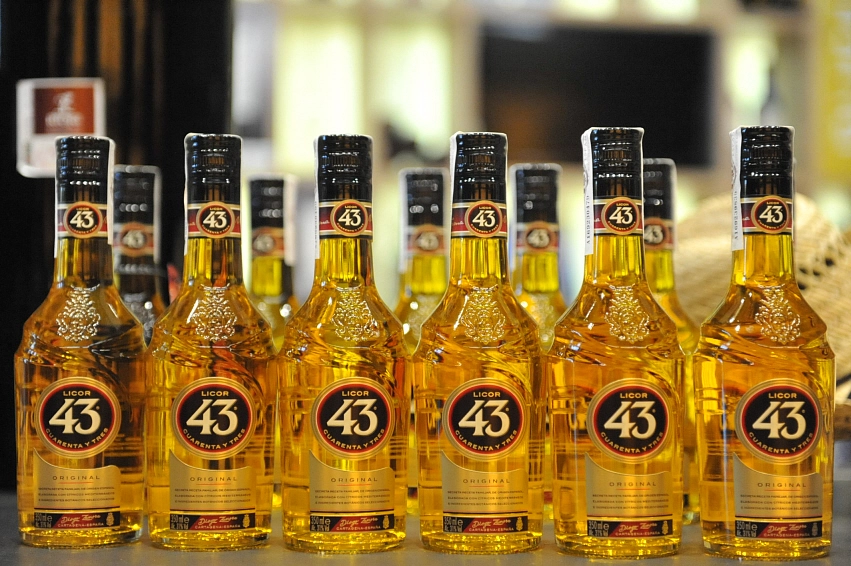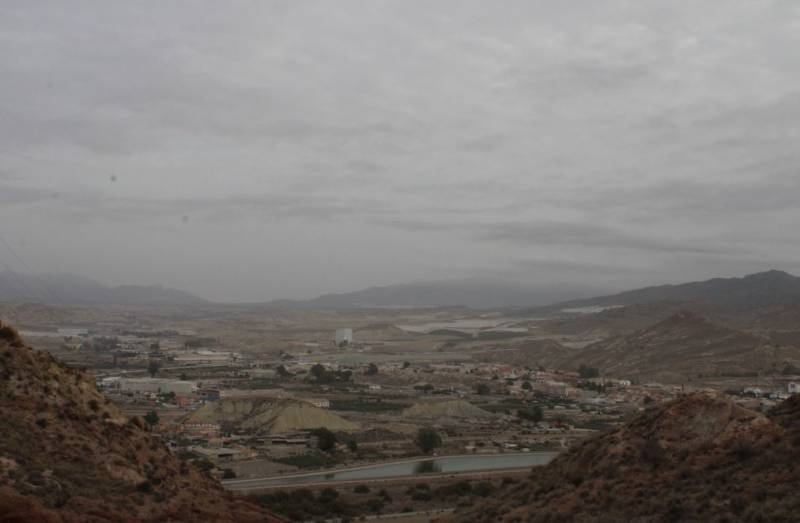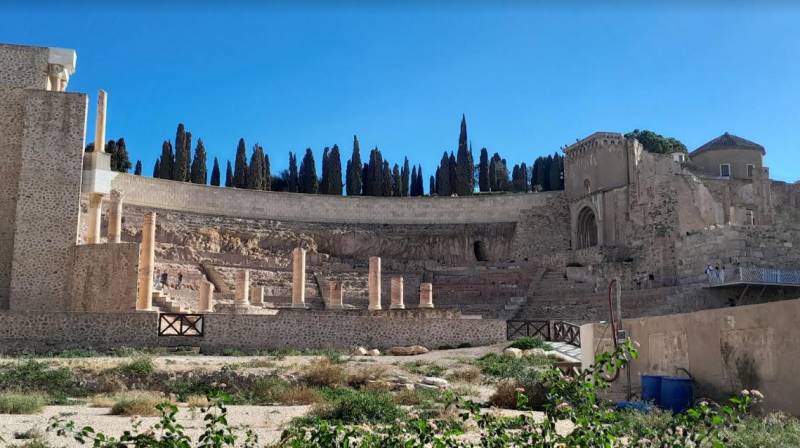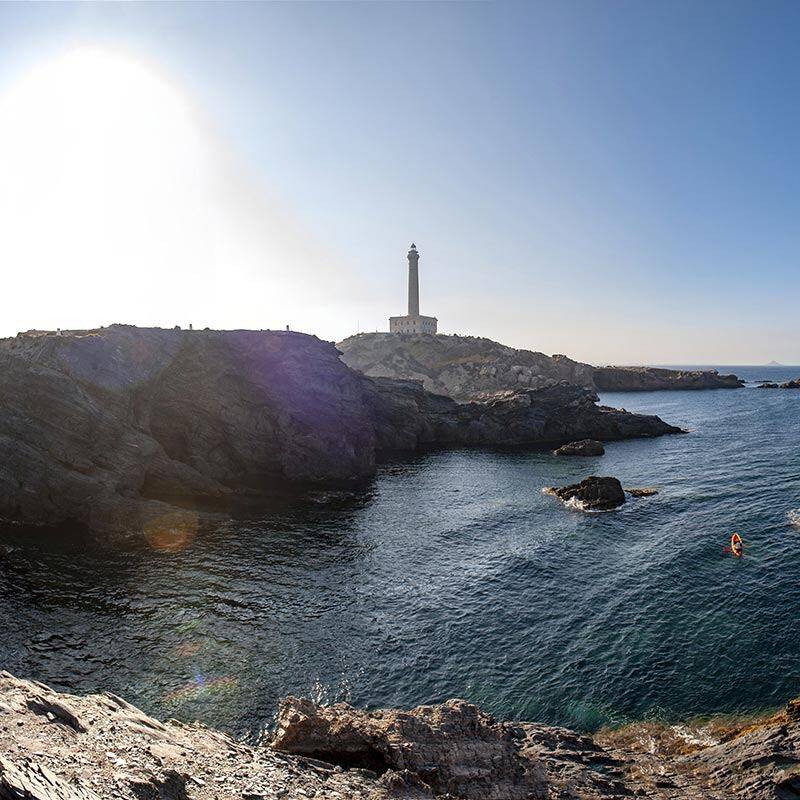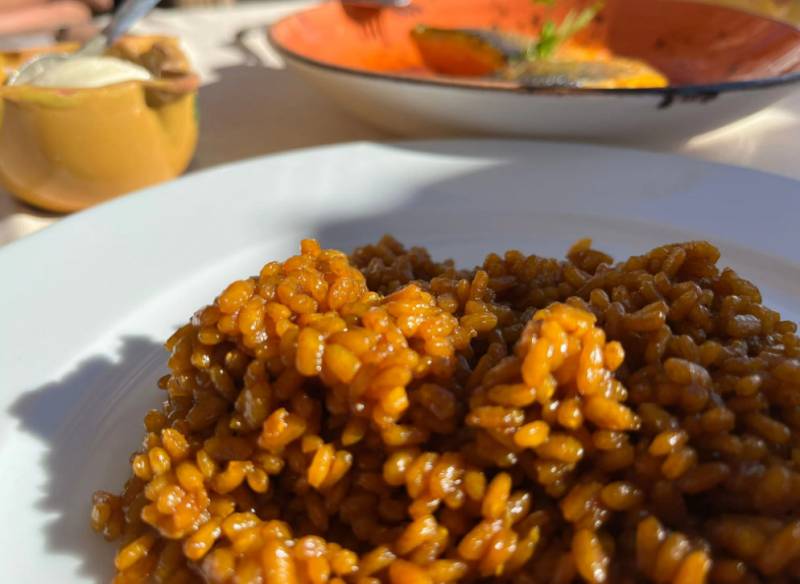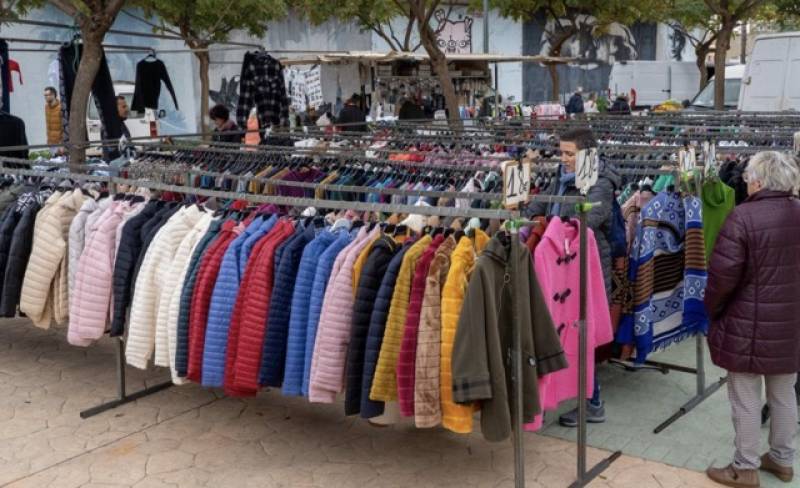-


 Welcome To
Welcome To CARTAGENA
CARTAGENA
 A must do visit
A must do visit The Roman TheatreCartagenaClick Here for more information
The Roman TheatreCartagenaClick Here for more information
 Welcome To
Welcome To CARTAGENA
CARTAGENA
- Region
- Águilas
- Alhama de Murcia
- Jumilla
- Lorca
- Los Alcázares
- Mazarrón
- San Javier
-
ALL AREAS & TOWNS
- AREAS
- SOUTH WEST
- MAR MENOR
- MURCIA CITY & CENTRAL
- NORTH & NORTH WEST
- TOWNS
- Abanilla
- Abarán
- Aguilas
- Alamillo
- Alcantarilla
- Aledo
- Alhama de Murcia
- Archena
- Balsicas
- Blanca
- Bolnuevo
- Bullas
- Cañadas del Romero
- Cabo de Palos
- Calasparra
- Camping Bolnuevo
- Campo De Ricote
- Camposol
- Canada De La Lena
- Caravaca de la Cruz
- Cartagena
- Cehegin
- Ceuti
- Cieza
- Condado de Alhama
- Corvera
- Costa Cálida
- Cuevas De Almanzora
- Cuevas de Reyllo
- El Carmoli
- El Mojon
- El Molino (Puerto Lumbreras)
- El Pareton / Cantareros
- El Raso
- El Valle Golf Resort
- Fortuna
- Fuente Alamo
- Hacienda del Alamo Golf Resort
- Hacienda Riquelme Golf Resort
- Isla Plana
- Islas Menores & Mar de Cristal
- Jumilla
- La Azohia
- La Charca
- La Manga Club
- La Manga del Mar Menor
- La Pinilla
- La Puebla
- La Torre
- La Torre Golf Resort
- La Unión
- Las Palas
- Las Ramblas
- Las Ramblas Golf
- Las Torres de Cotillas
- Leiva
- Librilla
- Lo Pagan
- Lo Santiago
- Lorca
- Lorquí
- Los Alcázares
- Los Balcones
- Los Belones
- Los Canovas
- Los Nietos
- Los Perez (Tallante)
- Los Urrutias
- Los Ventorrillos
- Mar De Cristal
- Mar Menor
- Mar Menor Golf Resort
- Mazarrón
- Mazarrón Country Club
- Molina de Segura
- Moratalla
- Mula
- Murcia City
- Murcia Property
- Pareton
- Peraleja Golf Resort
- Perin
- Pilar de la Horadada
- Pinar de Campoverde
- Pinoso
- Playa Honda
- Playa Honda / Playa Paraíso
- Pliego
- Portmán
- Pozo Estrecho
- Puerto de Mazarrón
- Puerto Lumbreras
- Puntas De Calnegre
- Region of Murcia
- Ricote
- Roda Golf Resort
- Roldan
- Roldan and Lo Ferro
- San Javier
- San Pedro del Pinatar
- Santiago de la Ribera
- Sierra Espuña
- Sucina
- Tallante
- Terrazas de la Torre Golf Resort
- Torre Pacheco
- Totana
- What's On Weekly Bulletin
- Yecla


- EDITIONS:
 Spanish News Today
Spanish News Today
 Alicante Today
Alicante Today
 Andalucia Today
Andalucia Today
article_detailDate Published: 07/08/2011El Portus maintains historic fishing techniques
El Portús on the western coastline of Cartagena
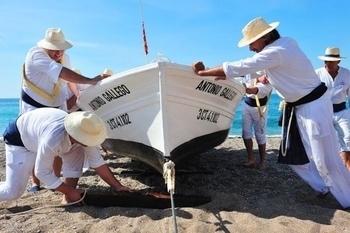 El Portus, a little fishing hamlet in the Cartagena municipality is currently enjoying its summer fiestas, with a busy programme of events and activities to celebrate the summer.
El Portus, a little fishing hamlet in the Cartagena municipality is currently enjoying its summer fiestas, with a busy programme of events and activities to celebrate the summer.On Saturday it hosted a demonstration of historic fishing techniques, showing visitors how fishing would have been traditionally carried out in the hamlet, which revealed just how hard and labour intensive life would have been for those fishing for a living before the invention of the diesel engined fishing boat.
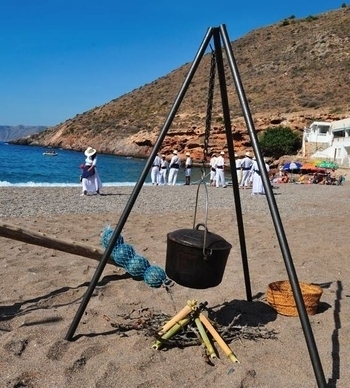 Everything was done by hand, hard graft, backbreaking labour and endless tasks a daily way of life.
Everything was done by hand, hard graft, backbreaking labour and endless tasks a daily way of life.Octopus pots, baskets for cleaning shellfish, floats, nets, all woven and sewn by hand, an endless task of reparation and maintenance, damage an everyday part of the job.
On the beach various work tools were displayed, stones drilled through to make weights, simple wooden pegs for stitching the nets, the winch for bringing in the boats, simple floats made of cork and mouth blown glass buoys wrapped in hand stitched nets, keeping the nets buoyant.
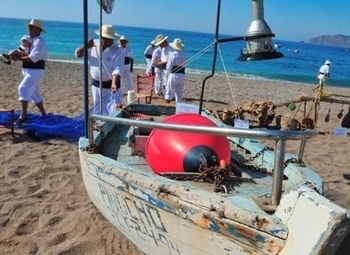 And of course, the caldero, a simple iron pot hung on a tripod in which the staple diet of coastal fishing families was cooked: caldero.
And of course, the caldero, a simple iron pot hung on a tripod in which the staple diet of coastal fishing families was cooked: caldero.This is a potent dish using the leftover fish and small fish, unsuitable for sale, to make a rich, fishy stock, to which rice and better pieces of fish would be added for a filling meal, simply cooked on the beach. Today it´s a gastronomic speciality of the region, as to make it is extremely expensive, fish reaching a hefty price . The recipe features fish by the kilo just for the first stage of creating the stock, so it´s never cheap, due to the sheer volume of fish required to make it.
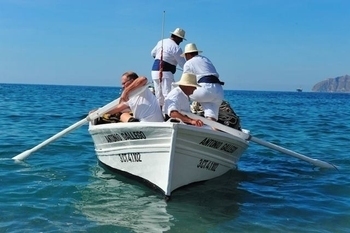 But it´s well worth trying if you´re in a really good fish restaurant, as the strength of the stock base delivers a powerful punch of the sea for those who enjoy a good fish dish.
But it´s well worth trying if you´re in a really good fish restaurant, as the strength of the stock base delivers a powerful punch of the sea for those who enjoy a good fish dish.On Saturday our fishermen, many of whom are descended from the families who formerly fished from this same beach, used a technique of bay fishing which is illegal today due to the damage it does to the sea bed.
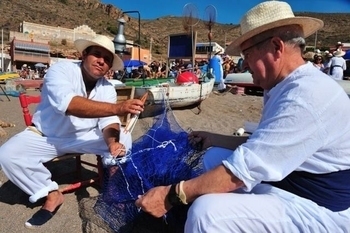 The whole of this bay is filled with posidonia meadows, which not only provide food and shelter for a wide range of marine life, but also prevent erosion, playing a valuable role in anchoring down the sand to prevent the tides washing it away. The art of bay fishing is to try and drop the nets to a depth at whish they collect fish, but avoid dragging down on the bottom of the bay, as this dragging is what causes so much damage to the marine ecosystem, uprooting the precious posidonia beds.
The whole of this bay is filled with posidonia meadows, which not only provide food and shelter for a wide range of marine life, but also prevent erosion, playing a valuable role in anchoring down the sand to prevent the tides washing it away. The art of bay fishing is to try and drop the nets to a depth at whish they collect fish, but avoid dragging down on the bottom of the bay, as this dragging is what causes so much damage to the marine ecosystem, uprooting the precious posidonia beds.In this case a special license was granted from the Town hall on condition that all the fish be released immediately and the depth of the nets be kept to a minimum to ensure no damage was done to the sea bed.
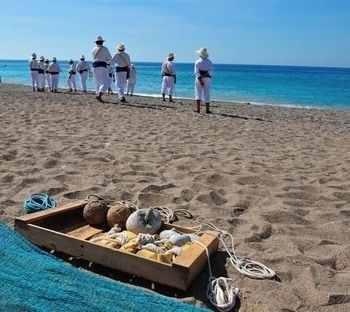 Basically, the process consisted of dropping one end of the rope holding the nets on one side of the beach, then rowing out in a small fishing boat to drop the nets in a semicircle out in the bay, then bringing the other end of the net into the beach.
Basically, the process consisted of dropping one end of the rope holding the nets on one side of the beach, then rowing out in a small fishing boat to drop the nets in a semicircle out in the bay, then bringing the other end of the net into the beach.Once the boat was back into the bay, it was hauled out of the water using a system of wooden blocks to roll it up the beach, pulled by a hand turned winch.
It took 6 men to push the winch around and haul the boat up the beach, hard work.
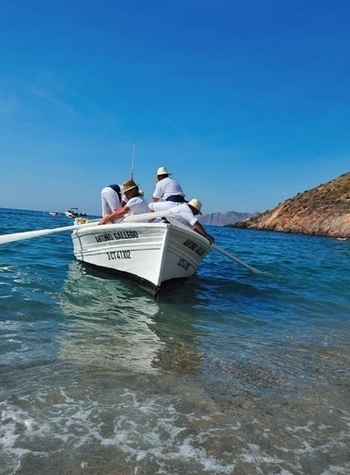 Then once both ends of the net were on the beach, the net was pulled in by hand, a giant tug of war with the sea, two teams, each of 12-15 working together to haul in the nets by hand.
Then once both ends of the net were on the beach, the net was pulled in by hand, a giant tug of war with the sea, two teams, each of 12-15 working together to haul in the nets by hand.The brunt of the weight was born by the back, a simple strap across the back giving the fishermen chance to lean back against the rope, using their whole bodyweight to haul in the net, instead of straining their backs pulling by hand.
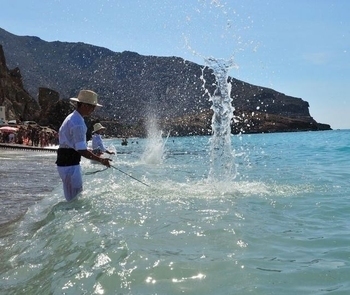 As they reached the back of the beach, they unhooked their rope from the main line, went back down to the waters edge and tied on again, repeating the process until the nets were visible , black against the jade waters of the bay.
As they reached the back of the beach, they unhooked their rope from the main line, went back down to the waters edge and tied on again, repeating the process until the nets were visible , black against the jade waters of the bay.As the nets drew into the beach, three men went into the water, holding a long piece of rope with a weight on the end. They then proceeded to lash the water with the rope, almost as if giving the sea a good beating for some un-specified misdemeanour.
Why are they doing that I asked an onlooker, "Oh its to kill the fish before they get to the beach, " she said knowledgably.
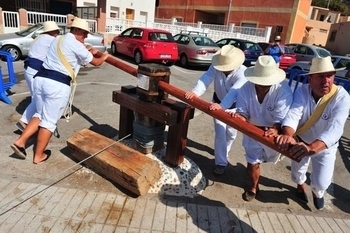 Pulverise them more likely.
Pulverise them more likely.Better ask someone else.
A resting fisherman said it was actually to stop the fish swimming to get out of the nets, driving them back, so that as the end of the net came into shore, the fish were all at the bottom of the net, not strung out along its length, a slow process to pick them out by hand , as they became entangled in the mesh.
As the net drew to the beach it became obvious what he meant, the net diameter tightened, closing to a fine mesh at its tip, escape impossible.
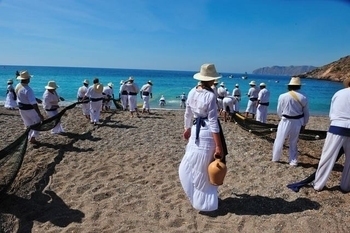 Historically, I was told, all family members would be waiting when the net came in, armed with baskets to take the fish straight from the nets to ensure they were not damaged by being dragged onto the beach, remaining clean for processing and sorting.
Historically, I was told, all family members would be waiting when the net came in, armed with baskets to take the fish straight from the nets to ensure they were not damaged by being dragged onto the beach, remaining clean for processing and sorting.But in this case the writhing mass of silver fish was released straight back into the sea, without leaving the surf line, a disappointment as by this point, following a lot of running around on the beach, a good appetite had been generated, the smell of hot coals sizzling in anticipation drifting across the sand, the waft of fish already dripping its sweet fat onto the fire stirring hunger pangs.
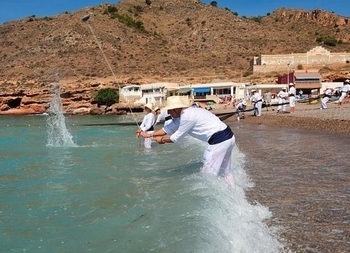 But this is Spain, and in typical Spanish fashion, the barbeques were already laden and spectators were tucking into generous portions of grilled fish, bread and beer whilst the patient ladies extracted the last little fish trapped in the net and waded in to retrieve plastic waste caught up in the catch, great amusement amongst the participants to see a plastic workmen´s hat, although sad to see the quantity of plastic bottles returned by the sea.
But this is Spain, and in typical Spanish fashion, the barbeques were already laden and spectators were tucking into generous portions of grilled fish, bread and beer whilst the patient ladies extracted the last little fish trapped in the net and waded in to retrieve plastic waste caught up in the catch, great amusement amongst the participants to see a plastic workmen´s hat, although sad to see the quantity of plastic bottles returned by the sea.And as the display ended, the party began, the food served so generously just the beginning , as on went the disco music and the little plaza partied, the fiestas just beginning for residents and visitors to the little hamlet.
And good to see some of you there, tucking into the fish and enjoying a Saturday morning with a difference, and even better to see a Scottish "fisherman" hauling on the rope with his Spanish neighbours and his white-clad wife serving water to the sweating men as they dragged in the nets.
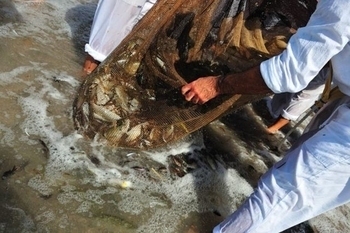 If you´ve never been, take a towel and go and have a dip one day.
If you´ve never been, take a towel and go and have a dip one day.It´s a beautiful spot, a glorious drive through the Cartagena campo, and a secluded and special little bay for those in the know to enjoy.
And next year, come and see how the fishermen harvested their crop of shining silver from the sea.....and be grateful for the level of comfort we enjoy and the ease with which our food arrives on our plates in this modern world.
Click for more info and map, El Portus
article_detail
article_detailContact Murcia Today: Editorial 000 000 000 / Office 000 000 000

To be listed on the CAMPOSOL TODAY MAP please call +34 .

To be listed on the CONDADO TODAY MAP please call +34 .

Guidelines for submitting articles to Camposol Today
Hello, and thank you for choosing CamposolToday.com to publicise your organisation’s info or event.
Camposol Today is a website set up by Murcia Today specifically for residents of the urbanisation in Southwest Murcia, providing news and information on what’s happening in the local area, which is the largest English-speaking expat area in the Region of Murcia.
When submitting text to be included on Camposol Today, please abide by the following guidelines so we can upload your article as swiftly as possible:
Send an email to editor@camposoltoday.com or contact@murciatoday.com
Attach the information in a Word Document or Google Doc
Include all relevant points, including:
Who is the organisation running the event?
Where is it happening?
When?
How much does it cost?
Is it necessary to book beforehand, or can people just show up on the day?
…but try not to exceed 300 words
Also attach a photo to illustrate your article, no more than 100kb




